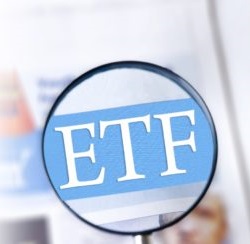
Foxberry expands the Sustainability Consensus index range with new indices licensed to Legal & General Investment Management for new core ETFs
Foxberry, the provider of financial indices and front-office technology for the financial sector, today announced the expansion of its Sustainability Consensus index family with two regional indices licensed to Legal & General Investment Management for the launch of two new exchange traded funds (“ETFs”) offering core regional exposure.
The two new Paris Aligned indices offer exposure to Japan, and Asia Pacific excluding Japan respectively. The indices expand the Sustainability Consensus index range which already includes regional indices for Europe and the United States of America, tracked by existing Legal & General Exchange Traded Funds.
The two new indices were developed on Foxberry’s foxf9® platform.
With Foxberry’s foxf9 platform, full transparency is achieved in understanding the impact of exclusion guidelines, green commitments, and Paris Alignment optimisation.
The two new ETFs, the L&G Japan ESG Exclusions Paris Aligned UCITS ETF and the L&G Asia Pacific ex Japan ESG Exclusions Paris Aligned UCITS ETF, have been listed on the London Stock Exchange, Xetra and SIX.
The Sustainability Consensus family of indices are based on exclusion guidelines determined by Foxberry’s Sustainability Committee. The Sustainability Committee aims to unlock the sustainability expertise among the asset owner community in order to be able to act on new insights in sustainability investing.
David Sahlin, Chairman of the Sustainability Committee, said, “I am excited that with this expansion of the Sustainability Consensus index family, tracked by the newly launched Legal & General exchange traded funds, investors can invest using our rules-based yet dynamic framework on more regional markets, all whilst committing to a Paris decarbonisation trajectory.”
The Paris Agreement aims to keep global temperature rise to well below 2°C, preferably to 1.5°C above preindustrial levels. To achieve this goal, global greenhouse gas emissions need to fall to by nearly half by 2030, and to net-zero no later than 2050, according to the Intergovernmental Panel on Climate Change (IPCC), and a corresponding minimum set of criteria for Paris Aligned benchmarks have been published by the EU.


